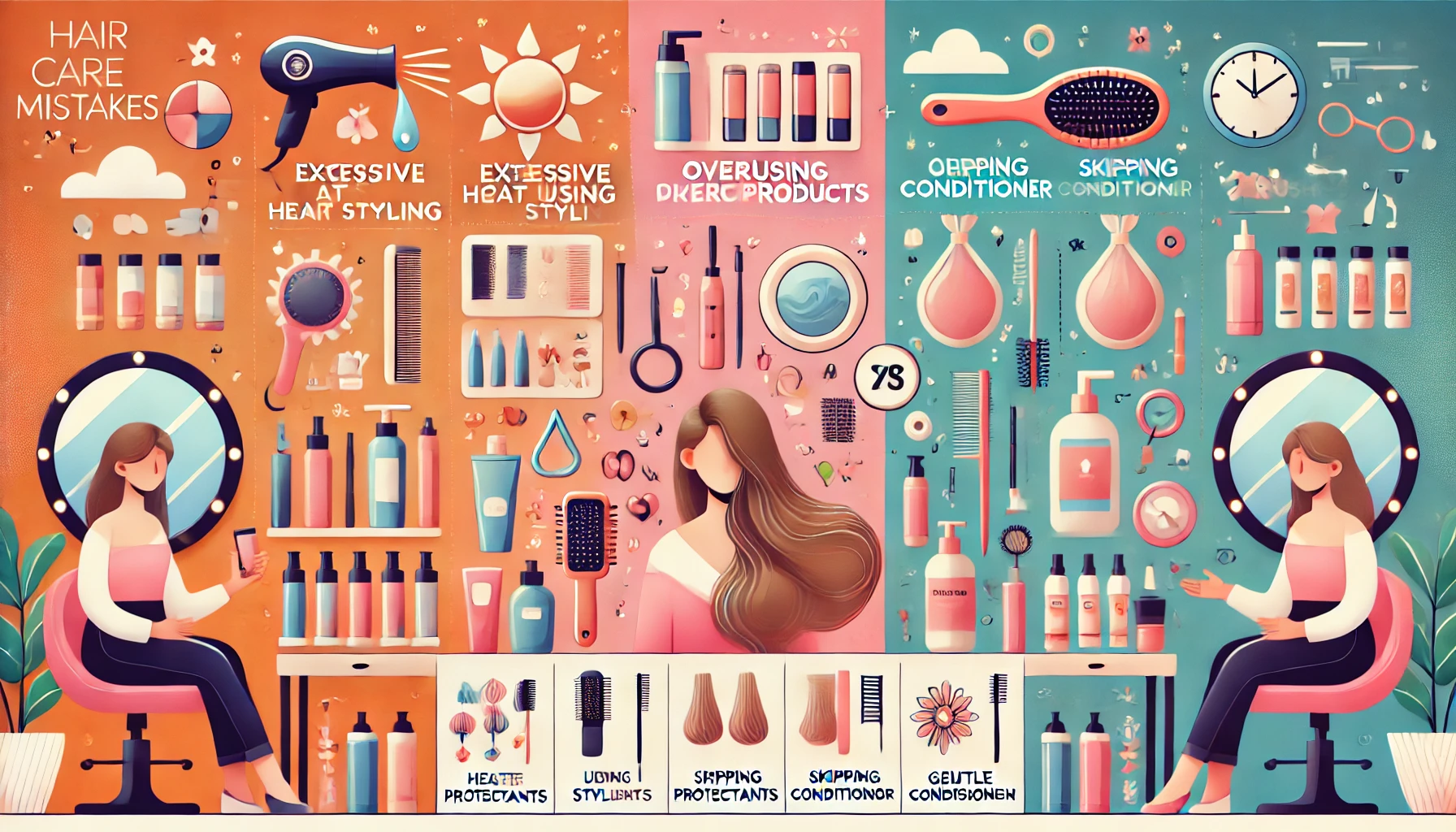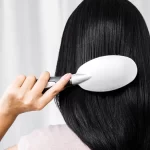We all strive for luscious, healthy hair, but sometimes our daily habits and routines can do more harm than good. Many of us unknowingly make mistakes in hair care that lead to dryness, breakage, or dullness. Fortunately, these mistakes are easy to correct with the right knowledge. Here’s a guide to some of the most common hair care mistakes and how you can avoid them to keep your hair looking its best.
1. Overwashing Your Hair
Washing your hair too frequently can strip it of its natural oils, leaving it dry and brittle. This is especially common for people with dry or curly hair, which needs more moisture to stay healthy.
How to avoid it:
- Wash your hair 2-3 times a week, depending on your hair type.
- Use a sulfate-free shampoo to minimize drying effects.
- On non-wash days, try a dry shampoo to absorb excess oil and keep your hair fresh.
2. Using the Wrong Products for Your Hair Type
Not all hair products are created equal, and using the wrong ones can lead to issues like buildup, dryness, or excess oil.
How to avoid it:
- Determine your hair type (oily, dry, curly, straight, etc.) and choose products designed for your specific needs.
- Pay attention to ingredients. For example, curly hair often benefits from moisturizing products with natural oils, while fine hair may need lightweight, volumizing formulas.
3. Overusing Heat Styling Tools
Excessive use of blow dryers, straighteners, or curling irons can cause heat damage, leading to split ends and breakage.
How to avoid it:
- Use heat styling tools sparingly, and always apply a heat protectant spray before use.
- Opt for lower heat settings and invest in high-quality tools with temperature control.
- Embrace heat-free styling techniques, like braiding your hair for natural waves.
4. Neglecting Regular Trims
Skipping regular trims in an attempt to grow out your hair can actually do more harm than good. Split ends can travel up the hair shaft, leading to more damage.
How to avoid it:
- Schedule a trim every 6-8 weeks to keep your ends healthy.
- If you’re trying to grow your hair, ask your stylist for a “dusting,” which removes only the very tips of your hair.
5. Towel-Drying Your Hair Aggressively
Rubbing your hair with a towel can rough up the cuticle, causing frizz and breakage.
How to avoid it:
- Gently squeeze out excess water with a microfiber towel or an old T-shirt.
- Let your hair air dry whenever possible to minimize friction.
6. Ignoring Scalp Care
Healthy hair starts with a healthy scalp, yet many people focus only on the strands.
How to avoid it:
- Incorporate a scalp scrub or clarifying shampoo into your routine once a week to remove buildup.
- Massage your scalp regularly to stimulate blood flow and promote hair growth.
- Use products with ingredients like tea tree oil or salicylic acid if you’re prone to dandruff.
7. Brushing Wet Hair Incorrectly
Hair is most fragile when it’s wet, and using the wrong brush or technique can cause breakage.
How to avoid it:
- Use a wide-tooth comb or a brush designed for wet hair.
- Start detangling from the ends and work your way up to minimize pulling.
- Apply a leave-in conditioner or detangling spray to make the process easier.
8. Overloading on Hair Products
Using too many styling products can lead to buildup, making your hair look greasy and weigh it down.
How to avoid it:
- Stick to a few essential products that suit your hair’s needs.
- Use a clarifying shampoo once a month to remove product buildup.
- Always follow the recommended amount—a little can go a long way.
9. Skipping Heat Protection
Heat protectants are essential when using styling tools, yet they’re often overlooked.
How to avoid it:
- Never skip a heat protectant spray or serum before blow-drying, straightening, or curling your hair.
- Choose a product that suits your hair type for optimal protection.
10. Sleeping Without Protecting Your Hair
Tossing and turning on a rough pillowcase can lead to tangles and breakage overnight.
How to avoid it:
- Sleep on a silk or satin pillowcase to reduce friction.
- Tie your hair in a loose braid or bun to prevent tangling.
- Consider using a silk scarf or bonnet for added protection.



